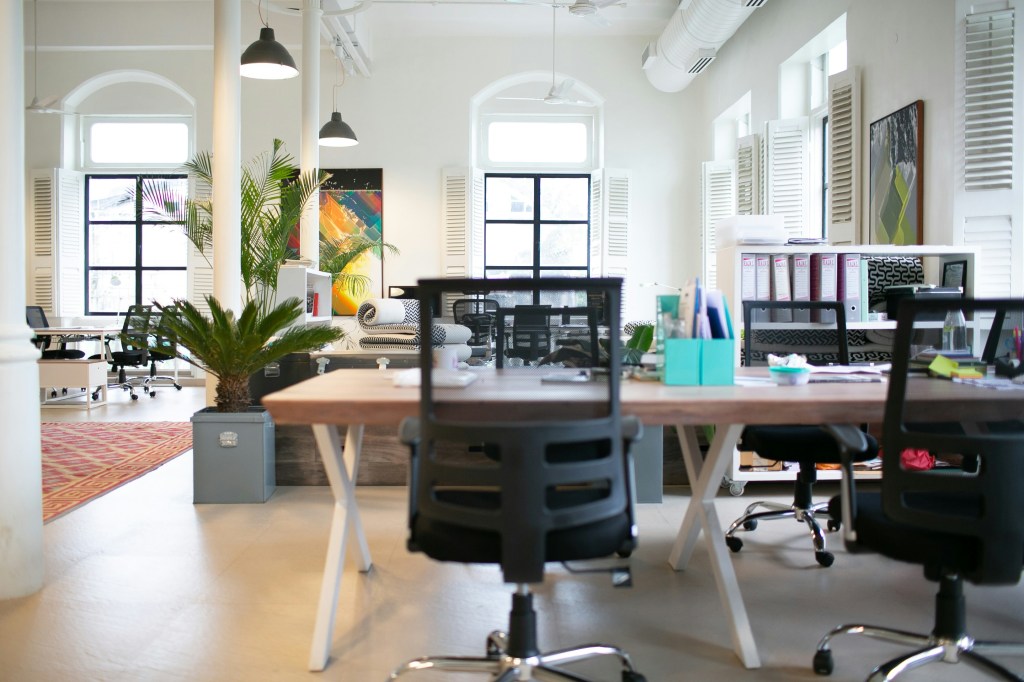The coworking industry has undergone a seismic transformation over the past decade, reshaping the way businesses and professionals approach workspaces. As we look to the future, coworking is poised for even greater evolution, driven by technological advancements, shifting work dynamics and changing consumer expectations. Here are key predictions for how the coworking industry will evolve over the next ten years.
Integration of Smart Technology
The coworking spaces of tomorrow will be powered by smart technology. From IoT-enabled desks and climate control to AI-powered space optimization tools, technology will create highly efficient and personalized work environments. Real-time data analytics will allow operators to monitor space utilization, predict maintenance needs and adjust settings to enhance comfort and productivity. Members will enjoy a seamless experience, with tools like automated booking systems, virtual concierge services and even biometric access controls.

Niche Coworking Communities
As the coworking market matures, spaces tailored to specific industries or demographics will become increasingly popular. For example, coworking spaces for tech startups, creatives or sustainability-focused businesses will cater to the unique needs of their members. This hyper-focused approach will foster stronger community ties and encourage collaboration among like-minded individuals and companies.
Expansion of Suburban and Rural Coworking
The rise of remote work has reduced the necessity for daily commutes to urban centers. In response, coworking operators will expand into suburban and rural areas to meet the needs of professionals seeking a balance between work and home life. These locations will provide flexible solutions for those who prefer to avoid the hustle of city centers while still benefiting from a professional environment.
Sustainable and Green Design
Sustainability will take center stage in coworking design. From using renewable energy sources to incorporating recycled materials in construction, coworking spaces will align with the growing demand for environmentally conscious business practices. Operators will also focus on wellness initiatives, incorporating biophilic design elements, improved air quality and ergonomic furniture to support members’ physical and mental health.

Hybrid Work Solutions
With hybrid work models becoming the norm, coworking spaces will position themselves as ideal solutions for businesses that require flexible arrangements. Operators will offer tailored packages for companies, allowing employees to work from coworking hubs closest to their homes. This distributed workspace model will reduce overhead costs for businesses while providing employees with access to professional environments.
Enhanced Focus on Wellness and Well-Being
Coworking spaces will increasingly prioritize wellness by offering features like meditation rooms, fitness centers and nutritious food options. Events and workshops on mental health, stress management and work-life balance will also become common, reflecting a shift toward holistic member support.

Virtual and Augmented Reality Workspaces
As VR and AR technologies advance, coworking spaces may extend their offerings into the virtual realm. Members could attend meetings, collaborate on projects or network in fully immersive digital environments, bridging the gap between physical and virtual workspaces.
Conclusion
The next decade will bring transformative changes to the coworking industry, shaped by technology, sustainability and evolving work trends. Operators who embrace innovation and adapt to the needs of their members will not only thrive but also redefine the future of work. The coworking spaces of tomorrow will be more than just workplaces—they’ll be dynamic ecosystems fostering creativity, collaboration and growth. Click below to find out how Yardi Kube coworking software can help you adapt your coworking space for the future.
